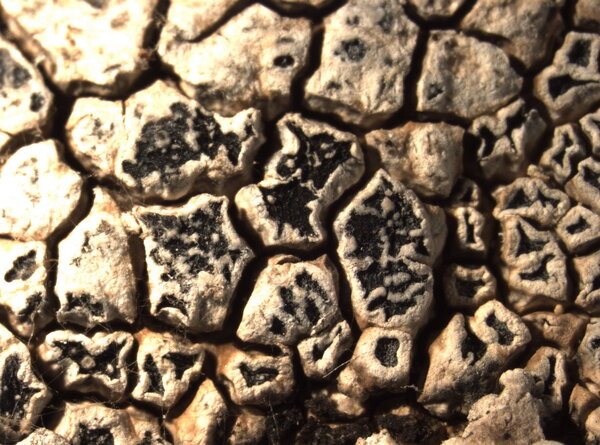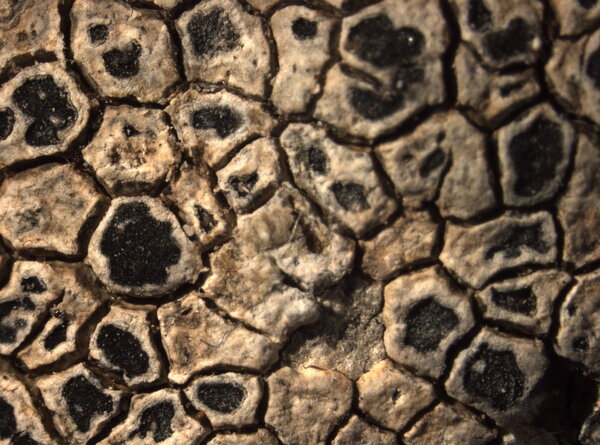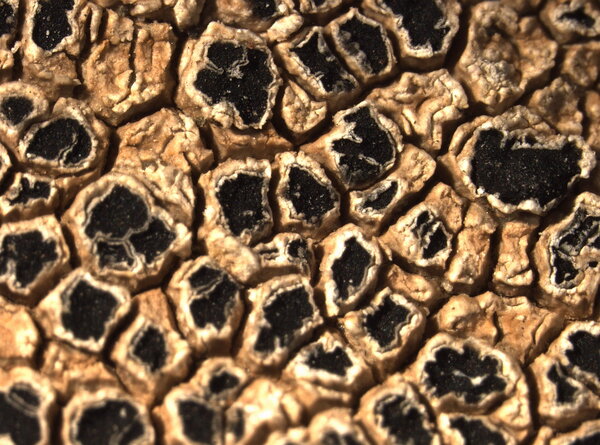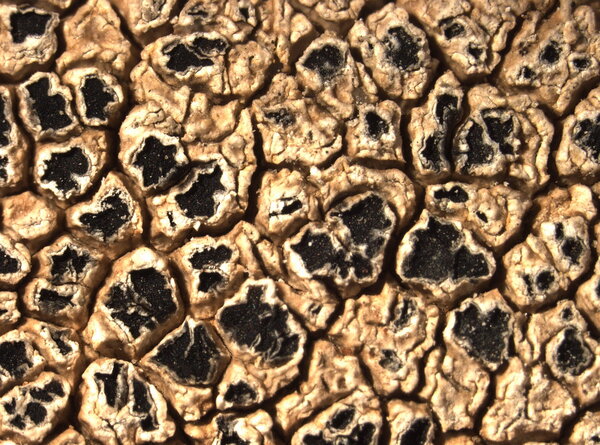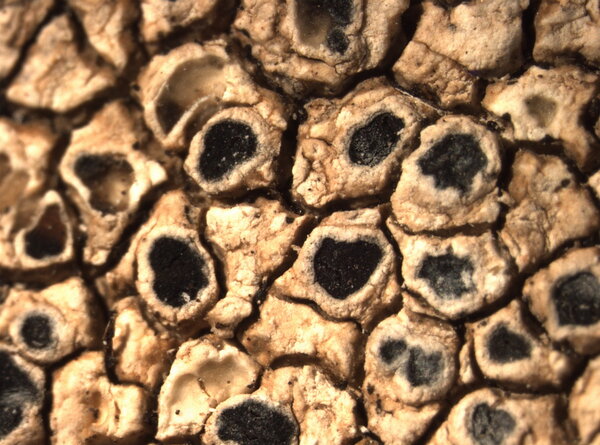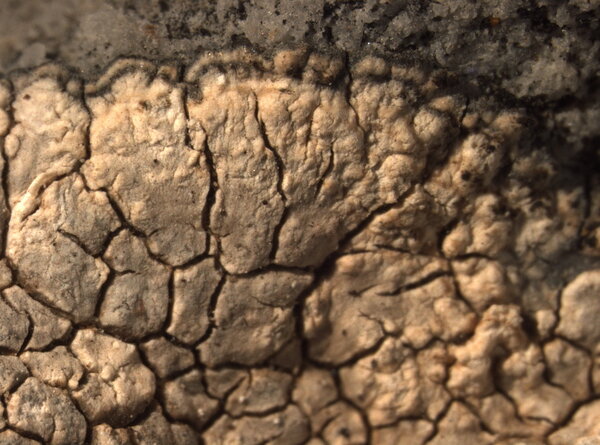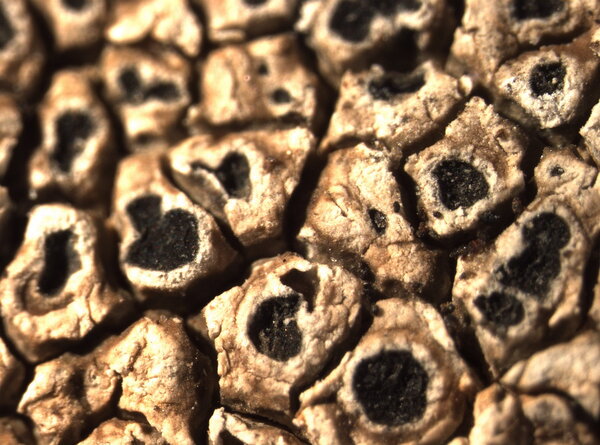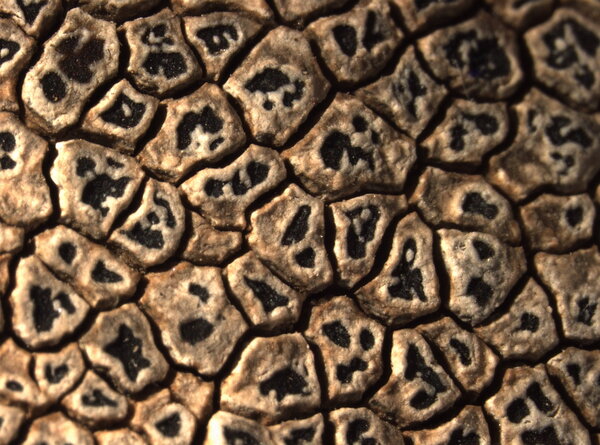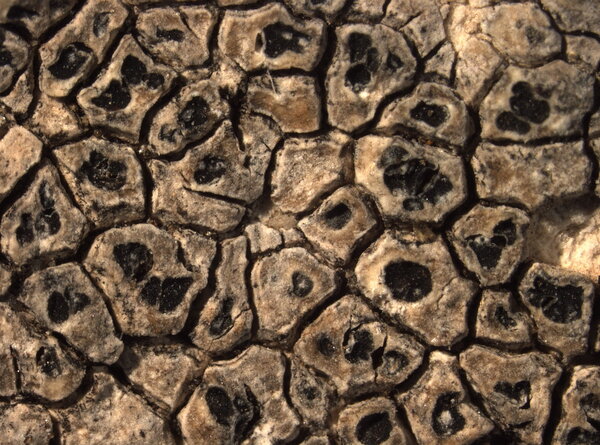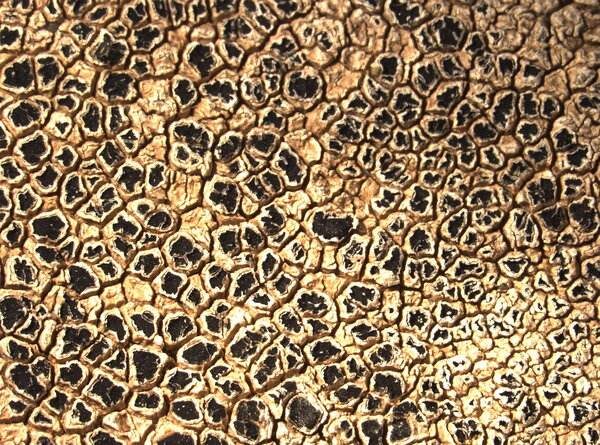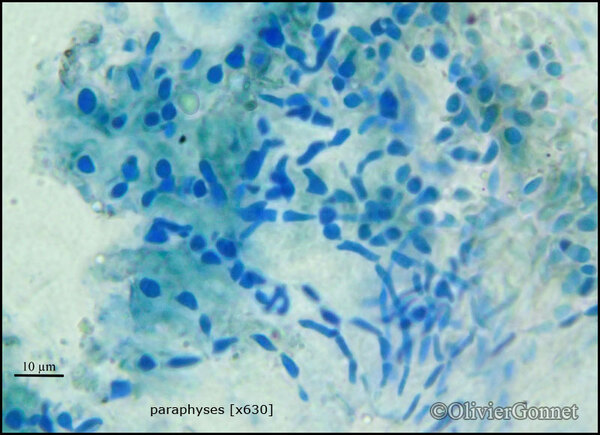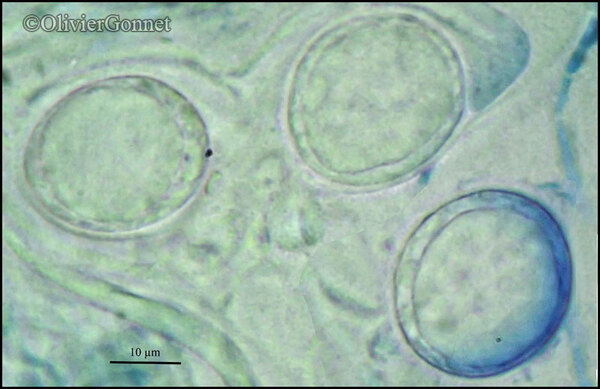Circinaria serenensis (Cl. Roux & M. Bertrand) A. Nordin
in Roux & al., Bull. Soc. linn. Provence, 67: 179, 2016.. Basionym: Aspicilia serenensis Cl. Roux & M. Bertrand - in Roux & al., Bull. Soc. linn. Provence, 67: 166, 2016.
Synonyms:
Distribution: N - Piem (Nascimbene & al. 2021). C - Marc (Nascimbene & al. 2021), Abr (Nascimbene & al. 2021). S- Camp (Nascimbene & al. 2021), Bas (Nascimbene & al. 2021).
Description: Thallus crustose, episubstratic, areolate, white, often with an ochraceous or brownish tinge, 0.5-1.4 mm thick, forming well-delimited, 3-10 cm wide patches, the areoles angular, 0.4-2 mm wide, slightly concave to slightly convex, the marginal ones often thinner and elongate. Cortex paraplectenchymatous, overlain by a 10-25 μm thick epinecral layer, with crystals insoluble in K and soluble in N, partially with the Subdepressa-brown pigment (especially in the apothecial margin); algal layer discontinuous, 45-70 μm high; medulla white, 0.4-1.3 mm thick in central parts of thallus, totally filled with large crystals of calcium oxalate, I-. Apothecia aspicilioid, 0.3-1.5 mm across, round to angular, sometimes confluent, with a concave to flat, black, epruinose or more rarely faintly pruinose disc, and a 0.05-0.25 mm thick, snow-white thalline margin. Proper exciple thin, colourless; epithecium olive-brown, 20-30 μm high, N+ emerald green (Caesiocinerea-green), with many small crystals; hymenium colourless, 150–175 μm high, I+ blue turning reddish; paraphyses coherent, non- or only slightly moniliform, 2-2.5 μm thick at mid-level, the apical cells 2.5-5.5 μm wide; hypothecium colourless, 25–50 μm high. Asci (2-)4(-6)-spored, clavate, the thin outer coat K/I+ blue, the wall and apical dome K/I-. Ascospores 1-celled, hyaline, broadly ellipsoid to subglobose, (18.5-)22-27(-30) x (14-)17–23.5(-25)μm. Pycnidia immersed, pyriform, with a colourless wall, the periostiolar region brownish green. Conidia thread-like, straight or rarely curved, (6-)8.5-13.5(-15.5) x 1(-1.5) µm. Photobiont chlorococcoid. Spot tests: cortex and medulla K-, C-, KC-, P-. Chemistry: thallus sometimes with detectable amounts of aspicilin. Note: a recently-described calcicolous species related to C. calcarea, with optimum in the montane-subalpine belts; the species, which is apparently widespread in the Western Alps (France), might have been filed under C. calcarea in the past, and should be looked for throughout the Alps, including the Italian Alps.
Growth form: Crustose
Substrata: rocks
Photobiont: green algae other than Trentepohlia
Reproductive strategy: mainly sexual
Commonnes-rarity: (info)
Alpine belt: extremely rare
Subalpine belt: very rare
Oromediterranean belt: very rare
Montane belt: rare
Submediterranean belt: extremely rare
Padanian area: absent
Humid submediterranean belt: absent
Humid mediterranean belt: absent
Dry mediterranean belt: absent

Predictive model
Herbarium samples
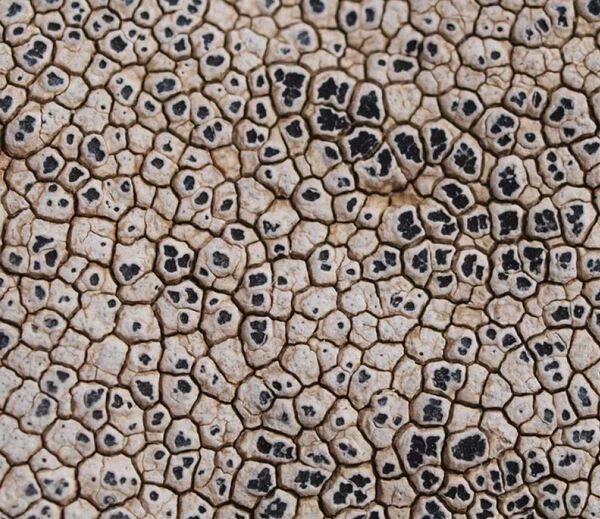
M. Bertrand - Source: Roux C., Bertrand M., Nordin A. 2016. Aspicilia serenensis Cl. Roux et M. Bertrand sp. nov., espèce nouvelle de lichen (groupe d’A. calcarea, Megasporaceae). Bull. Soc. linn. Provence, 67: 165-182.
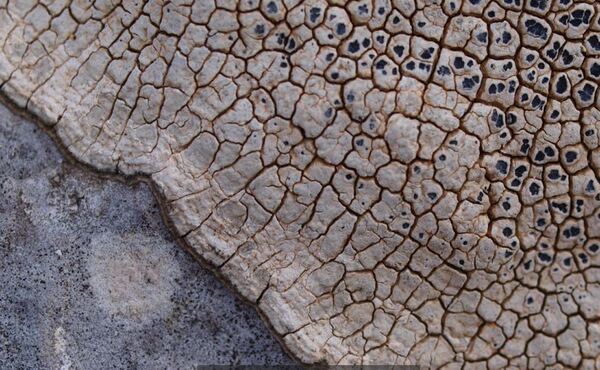
M. Bertrand - Source: Roux C., Bertrand M., Nordin A. 2016. Aspicilia serenensis Cl. Roux et M. Bertrand sp. nov., espèce nouvelle de lichen (groupe d’A. calcarea, Megasporaceae). Bull. Soc. linn. Provence, 67: 165-182.
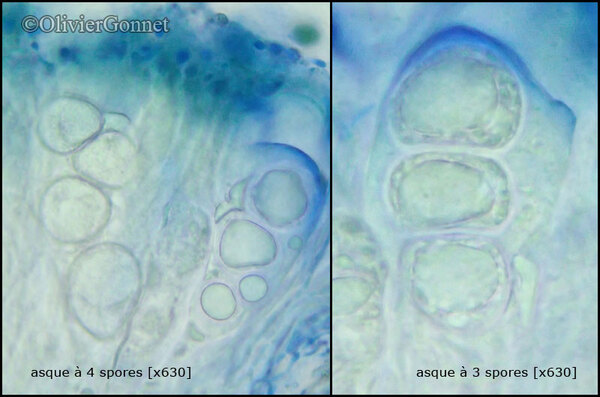
Courtesy Danièle et Olivier Gonnet - Source: https://www.afl-lichenologie.fr/Photos_AFL/Photos_AFL_A/Aspicilia_serenensis.htm
France, Session AFL - Foncine-le-haut - Jura -
24/08/2016
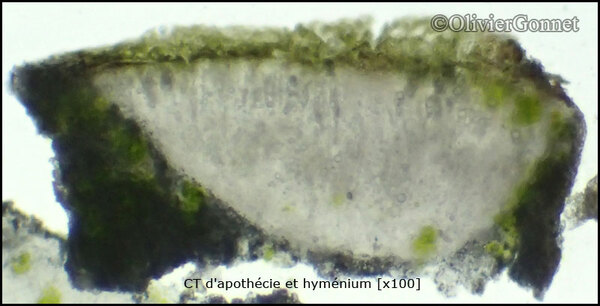
Courtesy Danièle et Olivier Gonnet - Source: https://www.afl-lichenologie.fr/Photos_AFL/Photos_AFL_A/Aspicilia_serenensis.htm
France, Session AFL - Foncine-le-haut - Jura -
24/08/2016
Growth form: Crustose
Substrata: rocks
Photobiont: green algae other than Trentepohlia
Reproductive strategy: mainly sexual
Commonnes-rarity: (info)
Alpine belt: extremely rare
Subalpine belt: very rare
Oromediterranean belt: very rare
Montane belt: rare
Submediterranean belt: extremely rare
Padanian area: absent
Humid submediterranean belt: absent
Humid mediterranean belt: absent
Dry mediterranean belt: absent

Predictive model
| Herbarium samples |

M. Bertrand - Source: Roux C., Bertrand M., Nordin A. 2016. Aspicilia serenensis Cl. Roux et M. Bertrand sp. nov., espèce nouvelle de lichen (groupe d’A. calcarea, Megasporaceae). Bull. Soc. linn. Provence, 67: 165-182.

M. Bertrand - Source: Roux C., Bertrand M., Nordin A. 2016. Aspicilia serenensis Cl. Roux et M. Bertrand sp. nov., espèce nouvelle de lichen (groupe d’A. calcarea, Megasporaceae). Bull. Soc. linn. Provence, 67: 165-182.

Courtesy Danièle et Olivier Gonnet - Source: https://www.afl-lichenologie.fr/Photos_AFL/Photos_AFL_A/Aspicilia_serenensis.htm
France, Session AFL - Foncine-le-haut - Jura -
24/08/2016

 INDEX FUNGORUM
INDEX FUNGORUM
 GBIF
GBIF
